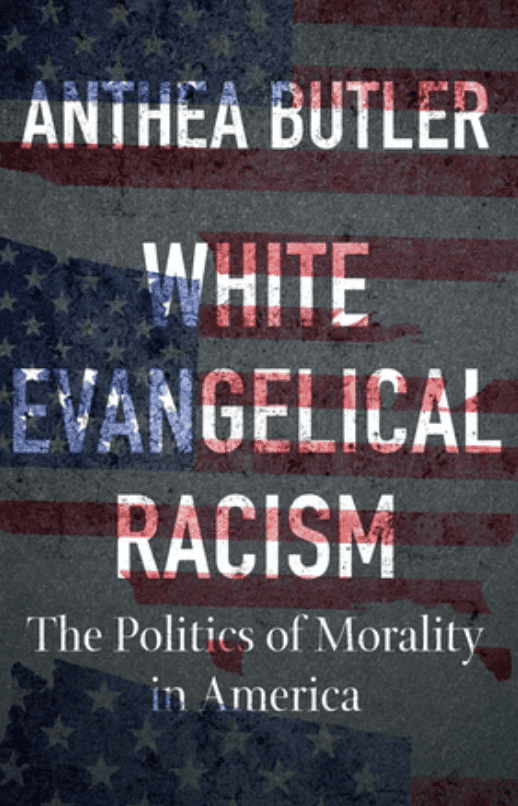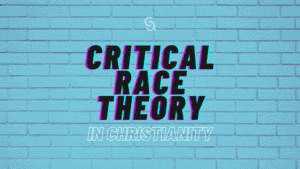
Originally published June 9, 2021
After the presidential victory of Donald Trump wherein the vast majority of White evangelicals voted for the celebrity-turned-crass-politician, many Christians both inside and outside the church were forced to reckon with an issue of identity.
Christians had supported and voted in a man with a shameful racial history and a dehumanizing and racist present. Then, for four years, the Trump administration spouted racist rhetoric, calling Mexicans “drug dealers, criminals, and rapists,” calling white nationalists “very fine people,” and regularly relying on racist dogwhistling to rile up his base. This came to a head during the attack on the U.S. capitol on January 6, 2021, which was rife with Christian flags and “Jesus Saves” signs alongside antisemitic and explicitly White nationalist symbols (including the confederate flag).
Many of these self-proclaimed Christians seemed to understand the link between their racism and their radicalized political beliefs and actions. Many Christians, while holding less extreme iterations of the same ideas, often do not have the same self-understanding.
Quickly, some Christians wanted to disconnect themselves from “those Christians,” determining that this political moment was either a fluke or the natural response of conservative Christians feeling unheard during the Obama administration. These explanations root the reality of Donald Trump’s rise as an independent event rather than an extension of evangelicals’ historic and present commitment to racist ideas and structures.
In White Evangelical Racism, Anthea Butler offers a systematic history of the origins of evangelicals’ modern commitment to racist ideas, structures, and institutions. She argues that while evangelicals will often point to moral issues as their motivation for policy engagement and political activism, much of it is rooted first and foremost in the desire to uphold segregation, to control Black and Brown bodies, and to maintain social control.
Butler describes a reality where, in our current political moment, that racism is no longer a disqualifier for being an evangelical if it ever was to begin with. In tracing the key players and history of White evangelicalism specifically, Butler leaves little space for the intentionality and consistency of White evangelical racism even as the form it has taken changes.
This book is not a theology book, nor does it seek to answer questions about the Bible or specific churches. Instead, Butler offers a glimpse at the key power players, institutions, and politicians that shaped the religious right and the Republican party into the White-centered, pseudo-Christian voting bloc that it is today.
The author also uses history to narrate the racist epistemologies of White evangelicals—how their worldview came to be and the power mechanisms that uphold it. Butler summarizes part of this identity formation this way: “Christianity is whiteness as well as belief. It is a conflation that causes evangelicals to ignore their racism. They believe that their Christianity is a race, and this comprises an all-encompassing identity.”
When whiteness is the center, Jesus and Christianity simply become mechanisms to uphold whiteness. Butler succinctly offers concrete framing to what many, particularly people of color, experience in the politics of White evangelicalism.
This book is a significant resource for understanding the non-neutrality and intentional formation of White evangelicals’ racism, and by extension, moral politics. As democracy itself is in danger under the gerrymandering leadership of self-proclaimed Christian leaders in the Republican party, this book is an important read to help distinguish the spiritual from the political, as well as to shine a light on the entanglement of faith, politics, and power.
The racism we see and experience is no accident, and Butler uses the more hidden actions and motivations of so-called evangelical heroes to tell the truth. And in hearing the truth, we might be able to reclaim a more inclusive, expansive spirituality that looks more like the person of Jesus.
 Brandi Miller is the host of Reclaiming My Theology, a podcast seeking to take back theology from ideas and systems that oppress. Based out of Seattle, she works, speaks, and writes at the intersection of faith, politics, and justice.
Brandi Miller is the host of Reclaiming My Theology, a podcast seeking to take back theology from ideas and systems that oppress. Based out of Seattle, she works, speaks, and writes at the intersection of faith, politics, and justice.


